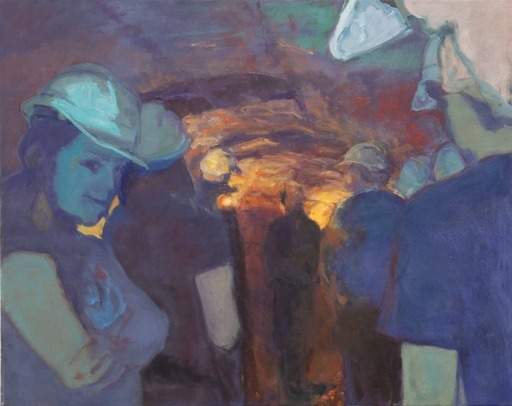The 60th Blake Prize
Religion, spirituality and everyday Australia come together in this year's finalists.
Overview
William Blake once said "without contraries, there is no progression," meaning that opposition hones our strengths by giving us a reason to improve. With accusations of intolerance often levelled at both religion and its opponents, religion itself said to be both resurgent and in decline, the spiritual and the sacred must be right about at their best right now. The Blake Prize, celebrating its 60th anniversary this year, invites artists to submit work based on both of these themes or 'human justice', and its finalists appear to be in top form this year. Originally inaugurated by a Jew and a Jesuit, the prize is named after Blake himself — a man who possessed profound spirituality, a yen for human justice, and mixed his own mythology.
Among the finalists are reclining deities, a multi-origined nativity by Martin Sharp, Simon McGrath's proposal for alternate transubstantiation, gods in place of fuzzy dice and Paula Gowans' Persephone in the carbon industry. There are also entries from names better-known in other fields, such as novelist Chris Tsiolkas and broadcaster Richard Moorecroft. The prize has incorporated a poetry prize since 2008, and finalists from this newly-minted aspect of the prize are already on show online.
Painting 'Persephone of the Illawarra' by Paula Gowans.





